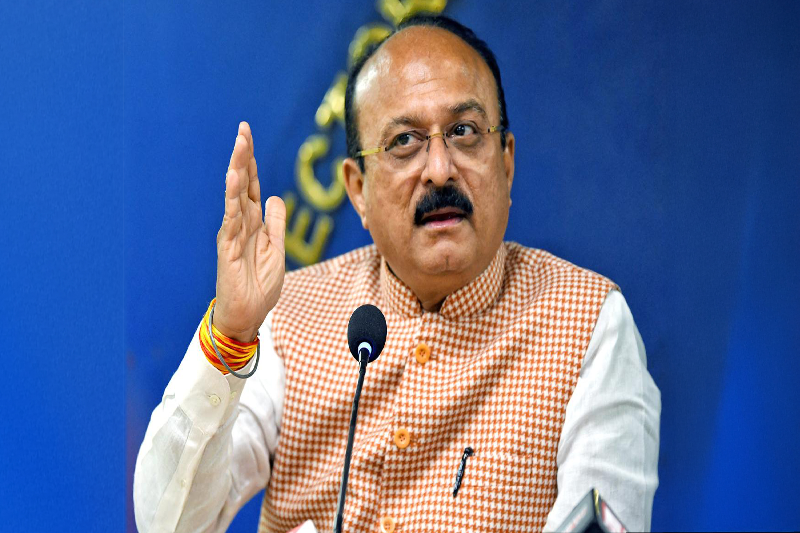
Delhi to Train Teachers in Indian Knowledge Systems at IITs from September
In a landmark move to integrate traditional knowledge into the modern education system, it is hosted by two of the country’s premier institutions—IIT-Mandi and IIT-Gandhinagar.
The initiative, announced by Delhi Education Minister Ashish Sood on Monday, is set to roll out in September 2025, and will mark a significant step toward enriching the educational ecosystem with India’s cultural, philosophical, and scientific heritage.
Focus on Reintroducing India’s Intellectual Traditions
The training programme is part of the Delhi government’s broader vision to reconnect students with India’s ancient knowledge traditions—something that has long been underrepresented in contemporary curriculums.
According to Minister Sood, the programme will include modules on:
- Indian philosophy and classical thought
- Sanskrit language and literature
- Traditional sciences
- Ancient Indian texts, including the Vedas and Upanishads
- Ayurveda and Yoga
- Broader aspects of Indian art and culture
Sood emphasised that understanding these systems is essential to fostering a deeper appreciation of India’s civilizational history and encouraging students to explore learning beyond conventional textbook education.
IIT-Mandi and IIT-Gandhinagar to Host Intensive Sessions
In the first phase, at least 50 teachers from Delhi government schools will be shortlisted for the training. These educators will be divided into batches of five, with each group undergoing five to seven days of intensive residential training.
The sessions will be held at IIT-Mandi in Himachal Pradesh and IIT-Gandhinagar in Gujarat, both of which already host active research and outreach programmes on Indian Knowledge Systems.
The choice of IITs for conducting the programme reflects the initiative's dual commitment to academic rigor and cultural depth, ensuring that teachers receive instruction from some of the leading experts in the field.
Bridging the Gap Between Ancient Wisdom and Modern Classrooms
“This initiative is designed to bridge the existing gap between modern education and India’s age-old knowledge traditions,” said Sood.
The intent is not only to enrich the content that students are exposed to, but also to empower teachers to deliver this knowledge with authenticity and context. By doing so, the government hopes to instill a stronger cultural identity and a sense of pride in India’s intellectual past among students.
The programme is aligned with the National Education Policy 2020 (NEP 2020), which encourages the integration of indigenous knowledge into school and higher education systems.
Curriculum Enhancement Through Teacher Training
While this initial programme focuses on training teachers, it is expected to have a ripple effect across Delhi’s school education system. The trained educators will act as multipliers, bringing back their learning to classrooms and teacher training centres.
As part of the government’s long-term vision, this move is seen as the first step in curriculum enhancement, where elements of Indian Knowledge Systems may eventually be introduced formally into lesson plans and teaching methodologies.
Reinforcing Cultural Roots Among Students
Minister Sood underlined the importance of creating a connection between young learners and their cultural roots, especially in an increasingly globalised world. He noted that education should not only be about acquiring technical or professional knowledge but should also provide a holistic understanding of one's own heritage.
“By training teachers in these areas, the aim is to foster a stronger connection between students and their cultural roots,” said Sood.
The approach reflects an inclusive, heritage-aware educational model that values India’s diverse intellectual history while still embracing the demands of a modern knowledge economy.
Future Expansion and Broader Integration
Though the initial batch includes only 50 teachers, the Delhi government is treating this as a pilot programme, with the potential for broader rollouts in subsequent phases. If successful, it could become a regular feature in the professional development of school teachers across the capital.
Given the growing national emphasis on IKS under NEP 2020 and increasing academic interest in integrating traditional Indian disciplines with STEM and humanities, Delhi’s initiative is expected to set a precedent for other states to follow.
Conclusion
The Delhi government’s decision to train teachers in Indian Knowledge Systems is a strategic and culturally significant step toward making education more contextually relevant and historically grounded. By partnering with IIT-Mandi and IIT-Gandhinagar, the programme not only ensures academic excellence but also affirms a long-overdue recognition of India's intellectual legacy in the school system.
As the programme launches in September, it carries the promise of nurturing a generation of educators—and in turn, students—who are not only well-informed about the modern world but also deeply connected to their cultural identity and civilizational roots.


